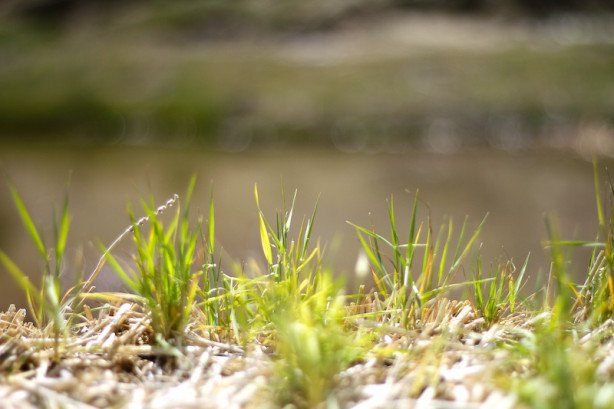
Those who seek to walk more closely with God may think that it will help us feel better about ourselves. But what if coming out from the shadows into the bright light of God?s presence causes us to see our flaws and mess all the more plainly? What then?
Listen to this good spiritual direction from James Houston in his The Transforming Power of Prayer (Colorado Springs: NavPress, 1996):
??in fact, a life more dedicated to God enlarges our consciousness of ourselves. The thoughts that we used to repress now come to the surface, revealing the inner world of our heart which needs to be brought under the rule of Christ. This is a disturbing process, as the filth from the cellar of our inner lives bubbles up, exposing the things that threaten and damage us deep inside. But it is also a life-giving process, allowing us to be forgiven and healed by God.? (Houston, p. 68.)
As my eyes are more and more enlightened in the Presence of Christ, I have a much clearer vision of Him?and of myself. This does not always feel like good news! There are things about my life so far that I would prefer to keep hidden. There are thoughts, cravings and dispositions that disturb and appall me. I?m tempted to throw them back into the unseen depths and then somehow pretend they aren?t down there. But sometimes a wiser and more real part of me realizes that these places in me aren?t a true ?me? (at least not any ?me? that God has made). They need to surface in His gracious presence that I might be cleansed and made whole before Him.
I?ve sometimes used the metaphor of a mountain lake to describe my life. I will at times notice floating debris that I long to see cleared out so that I would be more attractive and inviting. And what has often been my clean-up strategy? A skimmer?the kind I?ve used on a swimming pool in the past. I go about skimming debris off the surface of my life and, for a time, the lake seems clearer. Then, I notice places in the lake where filth is bubbling up from below. I skim this away as well?but the bubbles don?t stop. How will I deal with this kind of pollution? Do I just skim more diligently and persistently? Do I simply try harder? I may, but it is a futile effort.
God?s gracious strategy and his kind initiative have taken a different tack than me. He dries up the lake. He brings a drought. This drying up of the lake has been, for me the dark night of the soul that John of the Cross describes. He dries up what once seemed refreshing in my experience of Him. I find myself parched and uncomfortable.
As the lake recedes, what happens to the impurities of my life? Slowly and almost imperceptibly, the source of certain impurities begins to surface. At first, it is more recent and more ?near the surface? rubbish. God is kind enough to pull it out of these exposed deep places and remove it as far from shore as it can be thrown.
As time goes on, though, deeper and more ancient junk may come into view. Usually, I have been utterly unaware of its long-forgotten presence in me. God, in his immense mercy, arrives at that place long before I have noticed it and does the clean up work I cannot accomplish on my own. There comes a time when the lake of my life has been deeply scoured and is ready to receive the pure water of His presence more fully.
Only that which is exposed to the presence of God is therefore exposed to the healing and forgiving hand of God. Whatever there is in me is safe to surface in the presence of a merciful God. This kind of exposure is, as John of the Cross puts it in his poem, ?a sheer grace? and a ?secure? place. Even as I may feel vulnerable and even endangered in such exposure, the loving voice of God speaks healing and comfort into my depths.
Only that which is exposed to the presence of God is therefore exposed to the healing and forgiving hand of God. (Tweet This)
In these places where the dried-up lake has caused some of the ugliness of my old way of life to surface, I pray God grant me freedom not to hide, or worse, to return to those old ways, but rather acknowledge them and welcome Your forgiving and healing grace. This is what I need.
??we need to exercise prayer in the absence of God. Not that God Is truly absent, but he withdraws from us so that we can learn to know God as God. God is not our patron, our wish-fulfiller, or the generator of more illusions about ourselves. He is himself.? (Houston, p. 102.)
